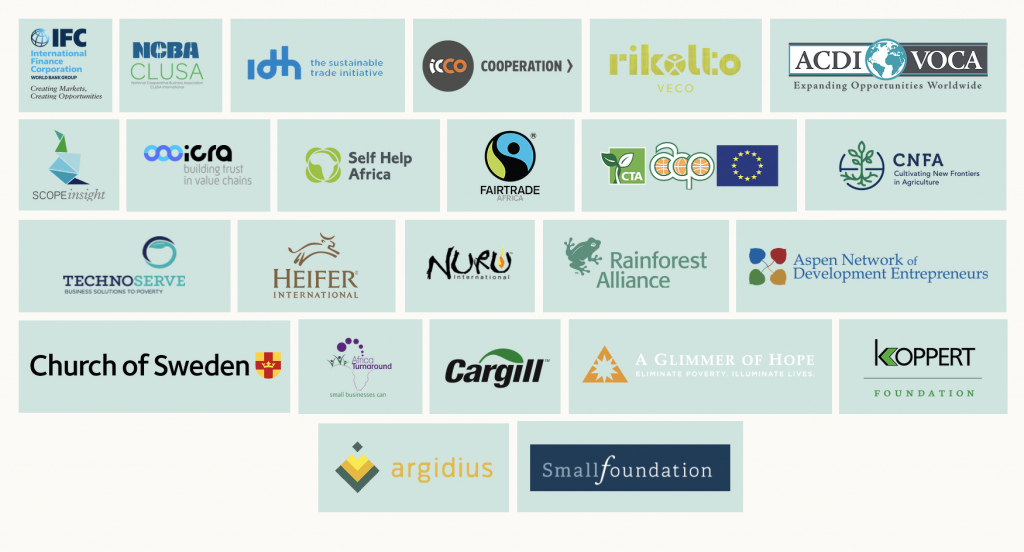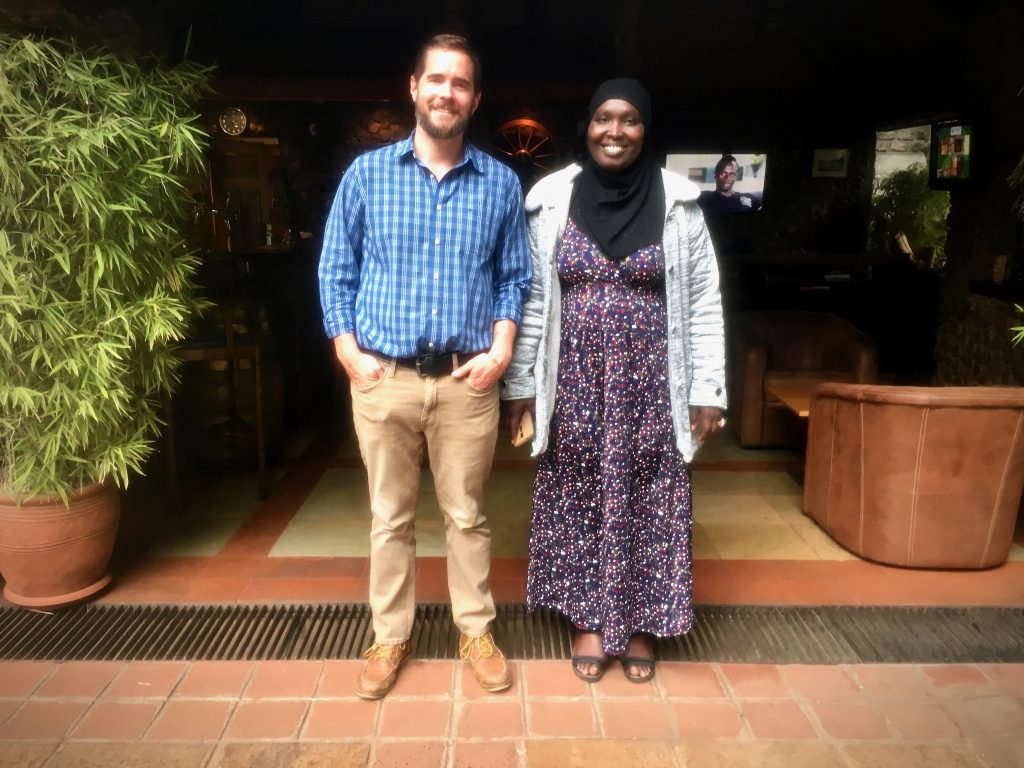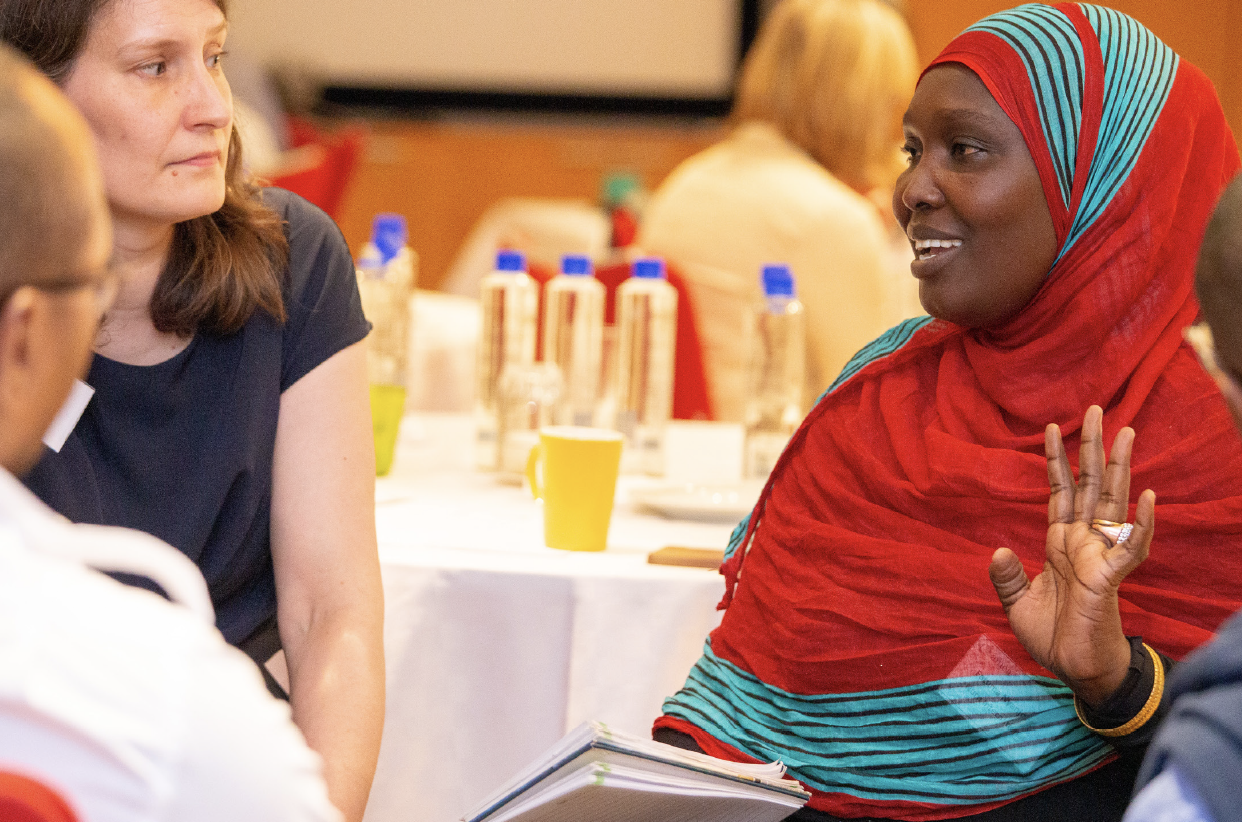One of the key components of the Nuru model to eradicate extreme poverty in fragile, rural areas is through investment in local farmer organizations that are self-sustaining. Our goal is to ensure that the farmers Nuru serves can compete in a dynamic agribusiness sector and contribute to their local economy, security, and resilience. This goal is unsustainable without smallholder farmers working together to aggregate produce, build business leverage, and generate agency through solidarity—all functions that professionalized and self-sustaining farmer organizations provide.
In furtherance of this goal, Nuru International and our local colleagues in Kenya and Ethiopia are active in the national farmer organization networks established by the Agribusiness Market Ecosystem Alliance (AMEA). AMEA is a partnership of NGOs, private sector companies, and multilateral institutions that aim to give smallholder farmers the best opportunity for growth and development in rural Africa and around the world. The most recent efforts of AMEA, and how they contribute to Nuru’s mission, are laid out in this previous blog post.

The AMEA Network of Partners. Credit: AMEA
At the end of May 2019, the AMEA Kenya local and global networks met in Nairobi, Kenya, to discuss and develop a joint action plan. The AMEA local networks have the potential to build collaborative partnerships across all agricultural value chains in Kenya and Ethiopia—partnerships that are locally specific, business-oriented, and that meet the needs of real farmers. Simply put, these outcomes will be realized through better coordination, more transparent bureaucratic processes, and improved economic opportunities for farmer organizations to become profitable businesses.
Nuru Kenya (NK) is a member of the AMEA local network and is represented by Fatuma A. Nyanjong, NK Cooperative and Market Linkage Program Manager. “It is evident that there are gaps in the cooperative sector in Kenya that need to be filled through collaboration,” Fatuma explains. By working together, NGOs, companies, and the government can ensure that smallholder farmers and their farmer organizations have the tools and support necessary to access sustainable finance, market linkages for their produce, and other necessary services to advance their contribution to the local and global economies.

Fatuma A. Nyanjong and Casey Harrison, Nuru International Rural Livelihoods Strategic Advisor, representing Nuru farmers at the AMEA Convening in Nairobi, May 2019.
According to Fatuma, “to professionalize smallholder farmer organizations, we need to start from the farmer level, where we support farmers to keep proper records, make informed financial business decisions, and negotiate with value chain actors.” Developing capacity in these areas in Kenya will increase the chances of Nuru-supported farmer organizations sustainably accessing a myriad of services from finance to extension. For example, the ability to meet the due diligence criteria of financial institutions with agribusiness portfolios requires professional financial management. Financial management at that level necessitates the local training and extension services that NK provides. These services would not exist in Migori County without NK.
The AMEA Kenya local network excites both Fatuma and Nuru because it focuses on professionalizing farmer organizations to simultaneously meet the requirements of the global economy as well as the needs of local Kenyan communities. These shared outcomes are vital to continually building a trusting culture of collaboration between partners and competitors in the agricultural development and private sectors.
Nuru International, Nuru Kenya, and Nuru Ethiopia will continue building partnerships and collaborative alliances to further the professionalization and sustainability of Nuru-supported farmer organizations. AMEA represents a strategic opportunity to ensure that local Nuru staff and their teams are challenged and inspired by diverse opinions and lessons learned from other global leaders in international development and the private sector.
The above content was written by Casey Harrison in cooperation with Fatuma A. Nyanjong.


